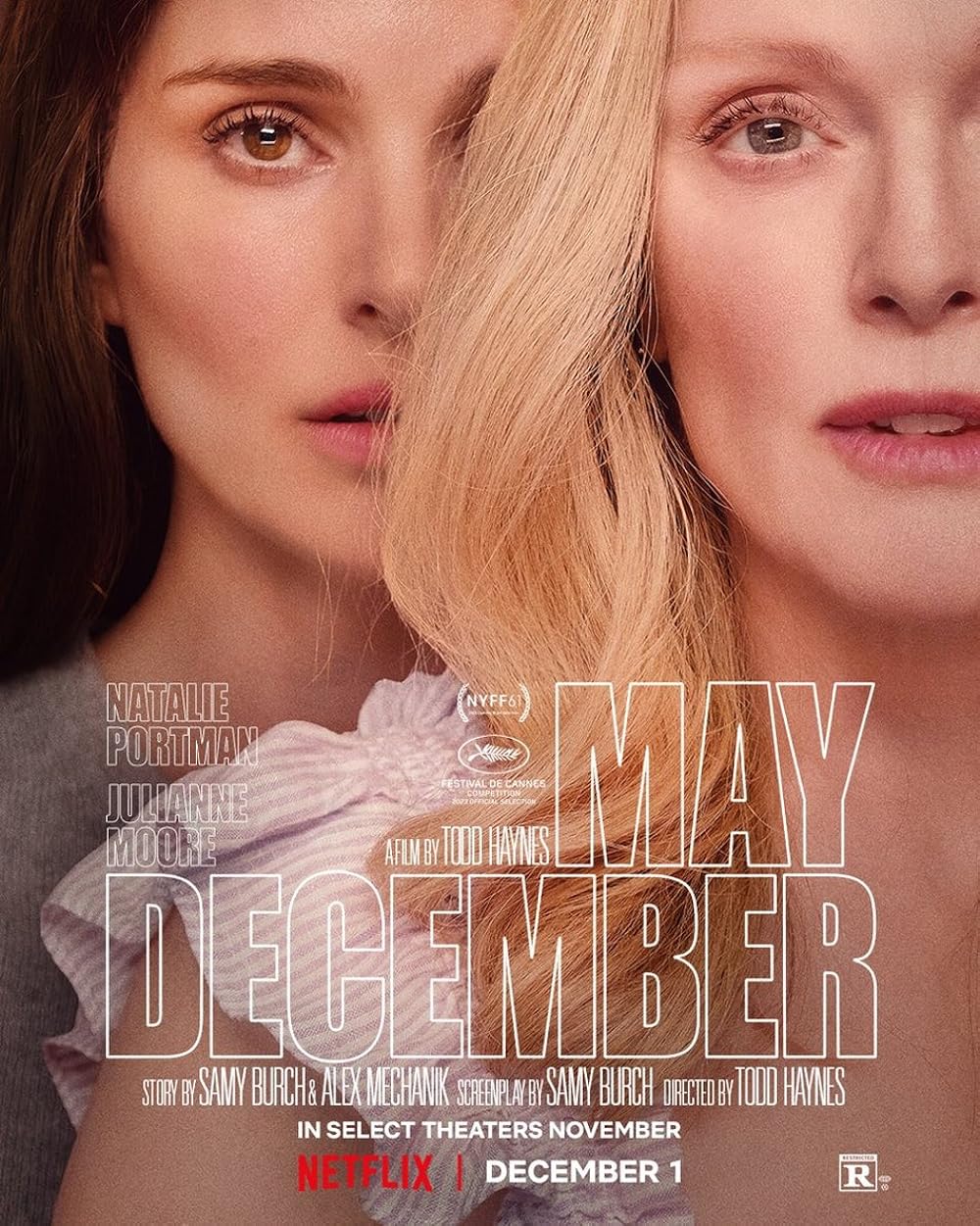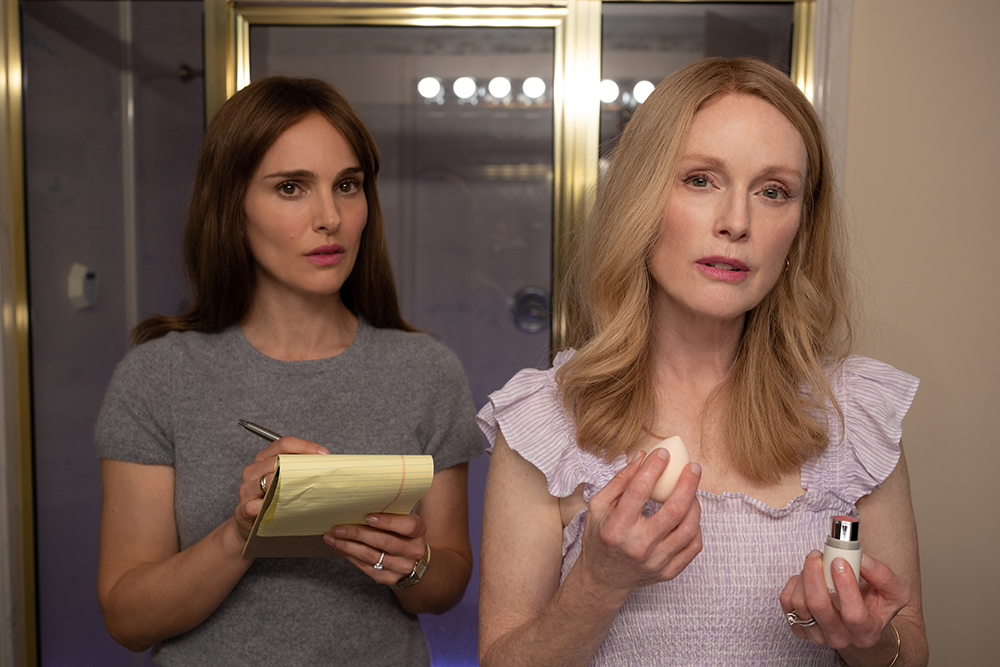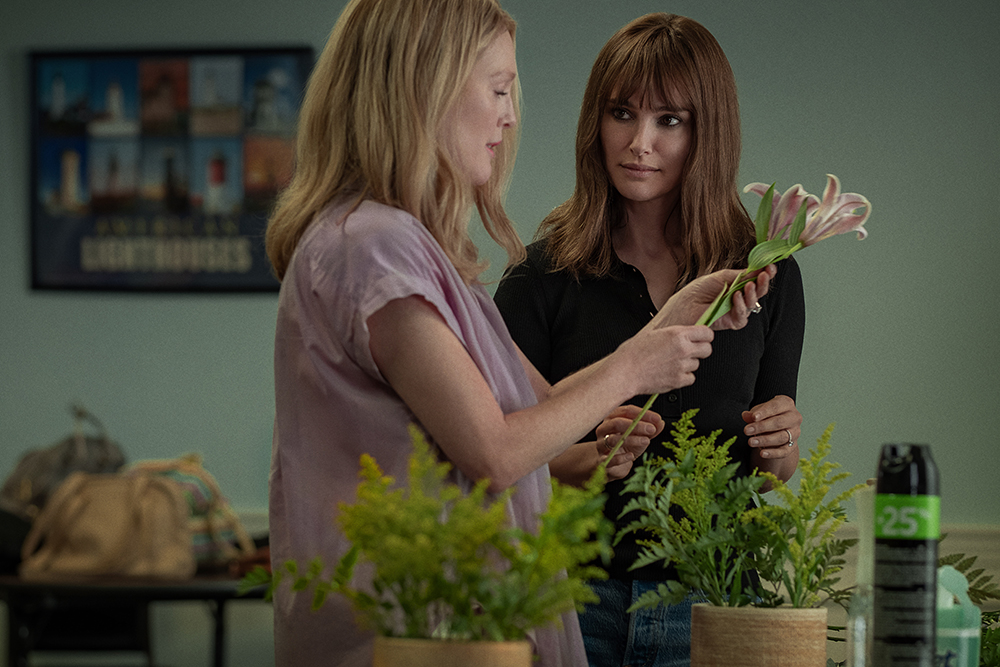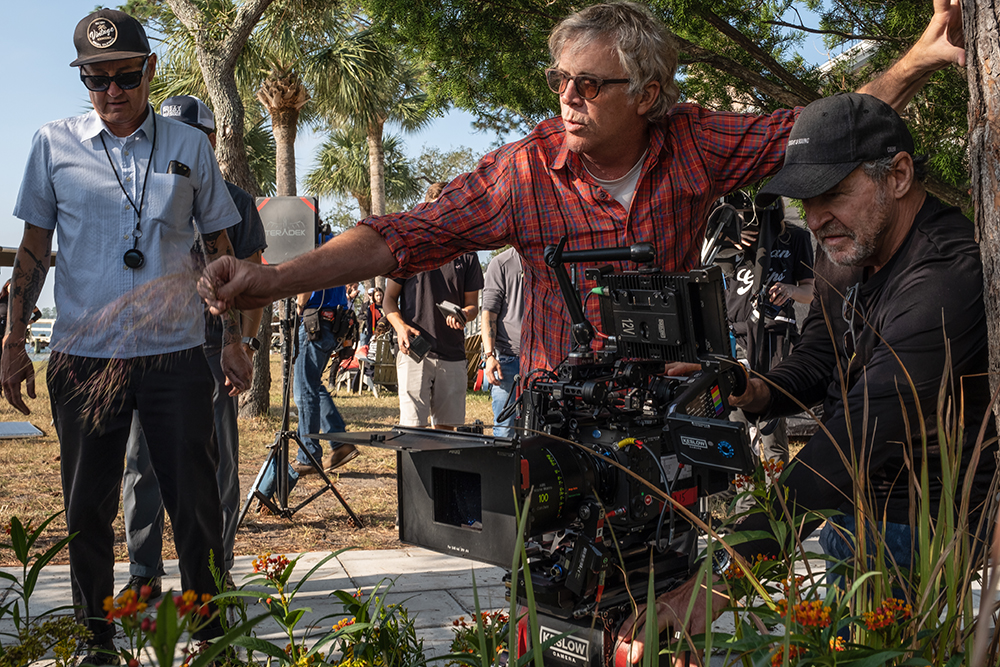Movies - May December : let’s talk with Marcelo Zarvos
By Mulder, Los Angeles, 30 november 2023

May December features the dynamic reunion of acclaimed composer Marcelo Zarvos and director Todd Haynes for their second collaborative project. The duo, previously lauded for their work on Dark Waters (2019), has joined forces once more to score the stylized melodrama, exploring themes of identity and the human penchant for self-reflection. Directed by Todd Haynes and written by Samy Burch, May December stars Natalie Portman as an actress delving into the controversial life of Julianne Moores character, loosely inspired by the story of Mary Kay Letourneau. The film, set in Georgia, premiered at the 76th Cannes Film Festival on May 20, 2023, and has now been released in select theaters across the United States as of November 17, 2023, with a Netflix streaming release today in United States and in movies theaters in France January 24 2024.
Q: How did you approach creating the musical score for May December to capture the essence of the film's stylized melodrama ?
Marcelo Zarvos: Well, that was a very unique experience because part of the task was to adapt previously existing music by Michel Legrand from a movie called The Go. So, my first few conversations with Todd Haynes were about how he really wanted to use that theme and music as the basis. It ended up being about 60% of the score, but I adapted and molded it to the movie more. It was a unique experience; I had never done this before, working with pre-existing music. It was challenging in some ways but also very satisfying. I mean, the director Todd Haynes is completely unique and groundbreaking, so everything he does is very different from the last. We had worked together on his last film, Dark Waters, where the score was more traditional. I wrote out the music, but for May December, he wanted the score to be almost separate from the movie, working the other way around. It's very in your face, jolting you out of the movie, very melodramatic by design, keeping you on edge all the time. That was the task, and that's what Todd wanted to achieve.
Q: Could you elaborate on how Michel Legrand's work on The Go-Between influenced your approach to scoring May December ?
Marcelo Zarvos: As I said, we used the themes for many different scenes from the beginning of the film, always returning to that theme as the main through-line. There were other types of music, more ambient and suspenseful, unrelated to Legrand, but the approach was to modernize it. We added synthesizers and electronics to the original orchestral score, making it more contemporary. Even though the melody sounds classical, Todd wanted it to have a slightly more modern sensibility.
Q: In what ways did you adapt your musical style to complement the themes of identity and self-reflection explored in the film ?
Marcelo Zarvos: When working on my own cues, some were meant to be closer to Legrand's style, while others were completely different. It was a case-by-case basis, figuring out where to use Legrand's themes and where I had to do my thing. I kept the instrumentation similar, with a lot of piano and very aggressive, busy music. It never competed with dialogue, always happening in between scenes. There was a lot of freedom and intensity, unlike anything I had done before, making the music almost deafening to jolt the audience out of the film.
Q: Were there specific challenges you faced when scoring May December, considering its unique narrative and character dynamics ?
Marcelo Zarvos: One of the first challenges was transcribing all the music from a recording since we had no scores for Legrand's work. It was complex music, and reorchestrating it took a lot of time. I had to become very familiar with the music to the point where I treated it as my own, creating variations and thinking about the chords and melody function. The whole process was quite challenging and had to be done in a very short amount of time.

Q: How did you decide on the instrumentation and musical elements to evoke the emotional depth required for the storytelling ?
Marcelo Zarvos: We stuck with the instrumentation of the original score, primarily orchestral with a featured piano. In certain scenes, like the pet shop with Natalie Portman's character, we used ambient music created by layering pianos to sound like a drone. The instrumentation was orchestral, with a heavy use of the piano. There were moments where I changed the chords to give it a more modern and contemporary feel.
Q: Can you share any memorable moments or scenes from the film that particularly influenced your musical choices ?
Marcelo Zarvos: One memorable moment is towards the opening when Natalie Portman's character is driving to meet Julianne Moore's character for the first time. The music had to have a tension-filled undercurrent since we don't really know what's happening. Todd wanted the music to make the audience feel uncomfortable and a bit out of breath, breaking conventions in film scoring where the music is purposely ahead of the picture, almost in a parallel movie to the viewer.
Q: With the release of the May December Score Album on December 1, 2023, what can listeners expect from the musical collection ?
Marcelo Zarvos: Listeners can expect the thundering and haunting themes from the film. It's a short but dense score, taking the audience on an emotional, sometimes scary and disturbing journey. It's beautifully played by a great orchestra in Prague. While enjoyable, it's not relaxing; it contributes to the overall cinematic experience, making the more classical music sound more modern and contemporary.
Q: Do you believe your musical imprint on May December contributes to the overall cinematic experience for the audience ?
Marcelo Zarvos: Yes, I believe my musical imprint aimed to make it more palatable for a modern audience. The task was to modernize it while maintaining the classical elements. My work involved orchestration, arrangement, performance, and sometimes changing chords to give it a more contemporary feel.
Q: What drew you to work on this specific project, and how did you find the emotional core of the story through your music ?
Marcelo Zarvos: I came to May December because I had worked with Todd Haynes before on his last film, Dark Waters. I would do anything Todd Haynes does; he's someone I love working with and deeply admire as a filmmaker. The non-black-and-white nature of the movie, not telling the audience what to feel or think about the characters, intrigued me. It's a smart and sophisticated approach that challenges the viewer, leaving much in a gray zone.

Q: How do you balance your classical roots, jazz background, and diverse musical experiences when crafting film scores like May December ?
Marcelo Zarvos: That mixture of classical, jazz, and world music is who I am as a musician. I bring what I believe the movie needs, thinking of myself as a member of the cast working with an invisible character. I bring my baggage and sensibility to each project, considering the needs of the specific film. Todd Haynes appreciates this collaborative approach, making the experience creatively challenging and satisfying.
Q: How has your journey from studying at Berklee College of Music and the California Institute of the Arts influenced your approach to film composition ?
Marcelo Zarvos: My education exposed me to various music genres. At CalArts, I majored in classical piano but played jazz, ethnic, African, and contemporary music. It provided me with an eclectic set of skills, allowing me to go in different directions for film composition. While I didn't study film scoring specifically, the diverse education prepared me well for the challenges of scoring different genres.
Q: As a composer, how do you navigate the balance between the emotional depth of the story and ensuring your music doesn't overpower the narrative ?
Marcelo Zarvos: It depends on the project. In the case of May December, the music intentionally overpowers the narrative, serving as a key element. Each director has a different approach, and I adapt accordingly. Working with different directors on various projects helps me become a more well-rounded composer, gaining new experiences and perspectives.
Q: Can you discuss your experience working with other directors in 2023, such as Antoine Fuqua and Eva Longoria ?
Marcelo Zarvos: Antoine Fuqua is my longest and most fruitful collaborator. We've worked together for almost 20 years on various formats, including feature films, documentaries, and series. He gives me a lot of trust and freedom while providing excellent direction. I appreciate his classical yet energetic approach to filmmaking. Working with Eva Longoria on her first narrative fiction film was impressive. She was focused, allowed experimentation, and aimed for authenticity in the music. Her smart and collaborative approach makes me excited to see her future projects.
Q: How do you feel about the increasing trend of streaming releases, like the one scheduled for May December on Netflix, impacting the way audiences experience film music ?
Marcelo Zarvos: I think streaming has been great, giving smaller independent films more visibility. While May December with its big stars might have been seen traditionally, streaming provides opportunities for many diverse films to reach a broader audience. It has been a positive influence overall, allowing more good films to be released.
Q: Beyond May December, are there any upcoming projects or genres you're particularly excited to explore in your future work ?
Marcelo Zarvos: I'm very excited about Cassandro, a film out on Amazon, telling the story of a gay Luchador in Mexico. It has a noir Mexican feel, being both beautiful and gritty, emotional, and inspirational. I'm happy with how the music turned out. Looking back on a busy year, I'm grateful for the diverse projects and the lessons learned. Managing time well, being present in each project, and bringing something original to each film are key takeaways.

Marcelo Zarvos musical composition for May December draws inspiration from Michel Legrands work on Joseph Loseys 1971 film The Go-Between, creating a haunting and melodramatic atmosphere that complements the films narrative. The May December Score Album, featuring Marcelo Zarvos evocative music, is set to be released on December 1, 2023. Marcelo Zarvos prowess in capturing the emotional essence of complex characters extends beyond his collaboration with Haynes. In 2023 alone, he has lent his musical talents to various projects, working with directors such as Antoine Fuqua, Eva Longoria, Calmatic, and Roger Ross Williams. His ability to convey the intricacies of characters has earned him praise from critics and collaborators alike.
Beyond May December Zarvos has left his musical imprint on films like Cassandro, Flamin Hot, Equalizer 3, The Big George Foreman, and White Men Cant Jump, showcasing the breadth of his artistic contributions to the world of cinema. Marcelo Uchoa Zarvos, the Brazilian pianist and composer, initially delved into classical music during his teens before studying at the Berklee College of Music and the California Institute of the Arts. Known for his success in jazz, Zarvos has delivered impactful film scores for a range of movies, including Kissing Jessica Stein, The Door in the Floor, Sin Nombre, American Ultra, and The Choice. His diverse body of work reflects his versatility and commitment to enhancing the cinematic experience.
Marcelo Zarvos stands out as a maestro whose music enhances the emotional depth of the storytelling, leaving an indelible mark on the world of film.
You can discover our review here

Synopsis :
Twenty years after their famous love affair made the tabloids, a married couple buckle under the pressure when an actress comes to research a film about their past.
May December
Directed by Todd Haynes
Written by Samy Burch
Story by Samy Burch, Alex Mechanik
Produced by Jessica Elbaum, Will Ferrell, Christine Vachon, Pam Koffler, Natalie Portman, Sophie Mas, Grant S. Johnson, Tyler W. Konney
Starring Natalie Portman, Julianne Moore, Charles Melton
Cinematography : Christopher Blauvelt
Edited by Affonso Gonçalves
Music by Marcelo Zarvos
Production companies : Gloria Sanchez Productions, Killer Films, MountainA, Taylor & Dodge, Project Infinity
Distributed by Netflix
Release dates : May 20, 2023 (Cannes), November 17, 2023 (United States), January 24, 2024 (France)
Running time : 113 minutes

Photos : May December Productions 2022 LLC
we would like to thanks Marcelo Zarvos for answered to our questions, Marygrace Oglesby and Ray Costa for this interview.

